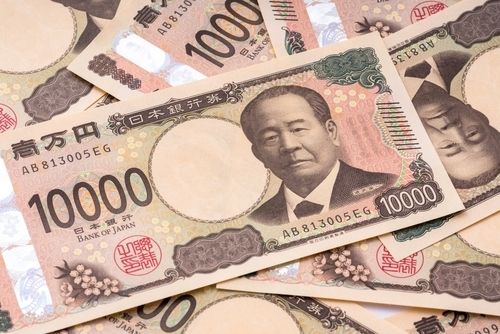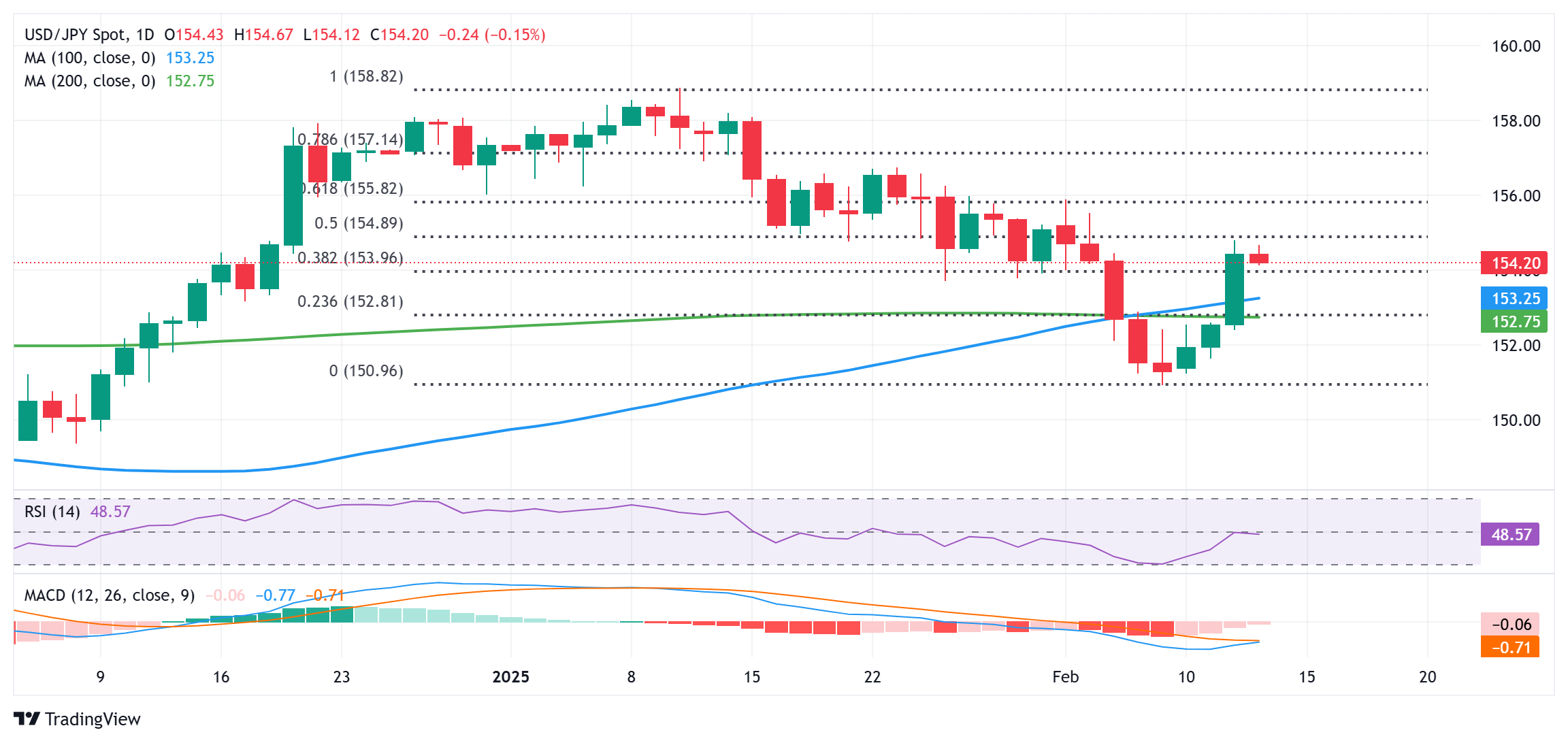Japanese Yen bulls seem reluctant as trade tensions offset BoJ rate hike bets

The Japanese Yen strengthened on Thursday in reaction to a stronger PPI print from Japan.
Worries about Trump’s trade tariffs and widening US-Japan rate differential cap the JPY.
Reduced Fed rate cut bets favor the USD bulls and contribute to limiting losses for USD/JPY.
The Japanese Yen (JPY) attracts some buyers following the release of stronger-than-expected Japan's Producer Price Index (PPI) on Thursday, which reaffirms bets that the Bank of Japan (BoJ) will hike rates further. The market reaction, however, turns out to be short-lived amid concerns about the implications of US President Donald Trump’s tariffs on steel and aluminum imports, and impending reciprocal tariffs. This assists the USD/JPY pair to hold above the 154.00 mark during the Asian session and remain close to over a one-week high touched the previous day.
Meanwhile, Federal Reserve (Fed) Chair Jerome Powell signaled that policymakers aren’t in a rush to push interest rates lower. Moreover, hotter US consumer inflation figures released on Wednesday suggested that the Fed doesn't have much room to cut rates this year. This, in turn, pushed the US Treasury bond yields higher, widening the US-Japan yield differential and capping the upside for the lower-yielding JPY. The US Dollar (USD), however, struggles to lure buyers, which, in turn, might hold back traders from placing fresh bullish bets around the USD/JPY pair.
Japanese Yen struggles to capitalize on stronger PPI-inspired modest intraday gains
A preliminary report released this Thursday showed that Japan's Producer Price Index (PPI) rose 0.3% MoM in January and by 4.2% compared to the same time period last year.
This points to signs of broadening inflationary pressures in Japan, which, along with the recent wage growth data, backs the case for additional rate hikes by the Bank of Japan.
Moreover, BoJ Governor Kazuo Ueda and Deputy Governor Himino recently signaled the possibility of another rate hike if the economy and prices align with the projections.
The Japanese Yen bulls seem reluctant amid worries that US President Donald Trump's no-exemption tariffs on commodity imports could endanger Japan's economic stability.
The US Bureau of Labor Statistics reported on Wednesday that the headline US Consumer Price Index rose 0.5% in January – the most since August 2023 and higher than estimated.
The yearly rate climbed to 3% from 2.9% in December, while the core CPI (which excludes food and energy prices) jumped 3.3% from a year ago compared to 3.1% expected.
The data underscores still sticky inflation, which, along with Friday's mostly upbeat US employment details, suggests that the Federal Reserve will stick to its hawkish stance.
Fed Chair Jerome Powell said that the central bank wants to keep monetary policy restrictive for now as inflation, though easing, remains elevated above the 2% target.
The yield on the benchmark 10-year US government bond registered its biggest one-day rise since December on hot US CPI print, widening the US-Japan rate differential.
Investors now look forward to the US PPI print, which, along with the US Weekly Initial Jobless Claims, might influence the US Dollar and drive the USD/JPY pair.
USD/JPY bulls might wait for a move beyond the 50% retracement level near 154.75
From a technical perspective, the overnight breakout through the 152.75 confluence hurdle and the subsequent move beyond the 38.2% Fibonacci retracement level of the January-February decline favor bullish traders. That said, oscillators on the daily chart – though they have recovered from negative territory – are yet to confirm a positive outlook. This makes it prudent to wait for some follow-through buying beyond the 154.75-154.80 region, or the 50% retracement level, before positioning for further gains. The USD/JPY pair might then surpass the 155.00 psychological mark, towards the next relevant hurdle near the 155.45-155.50 region and the 156.00 neighborhood, or the 61.8% Fibo. level.
On the flip side, the 154.00 mark, closely followed by the 153.75-153.70 area, now seems to protect the immediate downside. Some follow-through selling could drag the USD/JPY pair towards the 153.00 round figure, representing the 100-day Simple Moving Average (SMA), en route to the 152.75 confluence. The latter comprises the 200-day SMA and the 23.6% Fibo. level, which, in turn, should now act as a key pivotal point. A convincing break below would expose sub-151.00 levels, or a near two-month low touched last Friday, with some intermediate support near the 151.40 area.
* The content presented above, whether from a third party or not, is considered as general advice only. This article should not be construed as containing investment advice, investment recommendations, an offer of or solicitation for any transactions in financial instruments.



